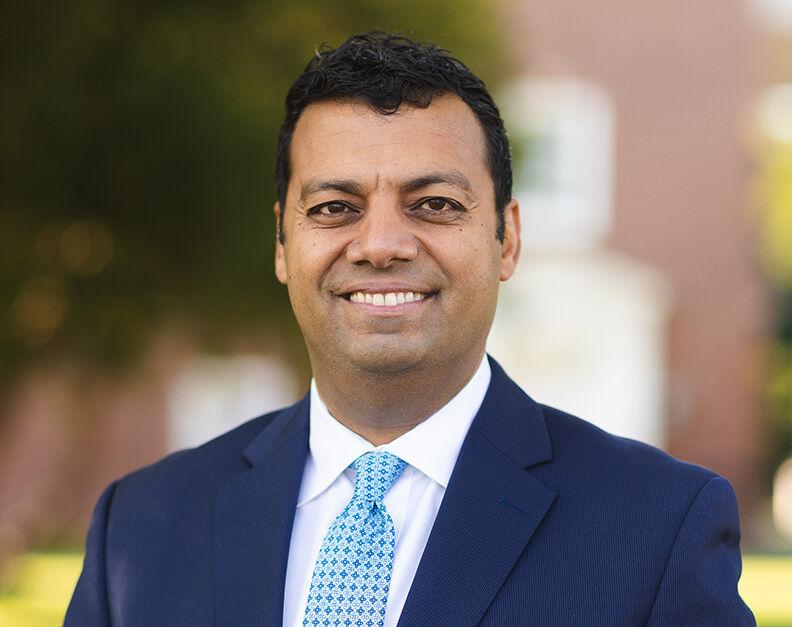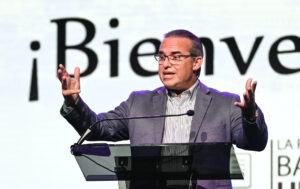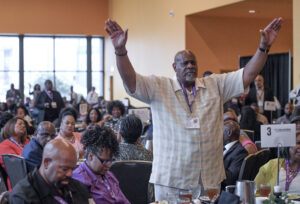
LOUISVILLE, Ky. (BP) — When Hamas terrorists launched a full-scale attack against Israel last weekend, A.S. Ibrahim said only one thing surprised him — that Israel was caught off-guard. He was shocked at the failure of the vaunted Israeli intelligence system.
“Israel is known to be very rigorous and prudent in their intelligence, and according to what we see and what we hear in the news, it appears that Israel was taken completely by surprise,” Ibrahim said.

Ibrahim, professor of Islamic Studies at Southern Baptist Theological Seminary, said the intelligence failure was even more pronounced because the date of the attack coincided with the 50th anniversary of the Yom Kippur War.
“From the Hamas side, it appears they chose the day carefully because it was on a Saturday, Shabbat, in Israel, and it was a holiday related to the Torah, so, it was a Jewish holiday. And it also coincided with the 50th anniversary of the big war in the Middle East, on Oct. 6, 1973,” he said.
But Ibrahim was not surprised that Hamas would launch such an attack given the group’s “Islamist” worldview.
“What we need to understand is that there is a difference between Islam as a religion and the political Islam as an ideology that is using the religion to advance its political goals,” Ibrahim said.
“Hamas is an example of political Islam, usually known as Islamism, in which Islam is not only a religion but also a political power that must advance and must prevail.
“So, for Hamas, Islam is not merely a worship or a set of rules to bring you closer to the deity but more like a political power that should be used for consolidation of power and hegemony.”
Ibrahim said Hamas emerged in the 1980s after Egypt and Jordan signed peace treaties with Israel much to the chagrin of Islamists.
“If political Islam wants to advance, they have a certain commitment to the religious claims found in Islamic sources. And these commitments force them to view the Jews as their enemy – their major enemy – even more than the Christians,” he said.
According to Ibrahim, the conflict between Muslims and Jews dates back to the seventh century when Jews refused to recognize Muhammad as a prophet, and he waged war against them.
“Muslims have this sentiment in their heart that is completely anti-Jewish. And the climax of the story comes from the death of Muhammad himself. According to the Muslim history, Muhammad did not die a natural death. He was actually poisoned by a Jewish woman. So, the Jewish woman who poisoned Muhammad led to his death which means the Jewish people as a group are responsible for the death of the most important person of Islam, Muhammad. That makes the anti-Jewish sentiment more severe and more prevalent.”
Ibrahim said organizations such as Hamas use texts from sources such as the Quran to justify their hatred of Jews. That hatred is seen in the atrocities the Hamas soldiers are committing.
“The religious texts fuel hatred,” he said. “If a Muslim is reading the scripture of Islam, they are seeing that the Jews are the most evil of persons, that the Jews are the enemies of Muslims, that Jews are pigs and monkeys in the stories of Muhammad’s life.”
But despite the constant tension and conflict in the region, Ibrahim said Gospel outreach is flourishing in the Middle East.
“I can tell you how much I am thrilled about what I am hearing and seeing in terms of Gospel proclamation in the region,” he said. “You would imagine a region in that chaotic situation would be very far from the Gospel. In fact, it is completely the opposite.”
Ibrahim recently visited the region with some of his students and saw the Gospel fruit.
“I would say that the amount of Gospel proclamation and the advancement of the Gospel in this land is unprecedented – as never before,” he said. “I saw Muslims coming to churches, attending the services, and I saw some of them baptized, and I saw some of them being discipled.
“I praise the Lord for all that is happening and seeing how many Muslims are abandoning their religion after they encounter the Gospel of Christ.”
Ibrahim joined Southern Seminary’s faculty eight years ago. He was born and raised in Egypt in what he called a “nominal Christian family.” He said he heard the Gospel when he has nine, repented and accepted Jesus as Lord and Savior.
He spent several years preaching and teaching in the region before coming to the U.S. to earn his M.Div. and two Ph.D. degrees. He said it was then that the Lord showed him he was to use his background to engage Muslims with the Gospel.
“I actually was much surrounded by Muslims all my life and got to know about their culture and practices and religion first-hand,” he said.
Ibrahim is concerned that the war between Israel and Hamas will not be short, and it threatens to involve other countries.
Yet, he believes there is a Gospel opportunity.
“I know personal friends who serve in that particular region and take the Good News of Christ into that tough situation,” he said, adding that Christians should be praying for America’s political leaders and that America remains a strong presence in the Middle East.
“America is a very important and crucial player in the region, and we don’t need a weak America in the region,” he said. “Whenever there is a weak representation of American presence in the region in terms of enforcing justice and supporting tolerance and liberty, then the region can easily be led to chaos.”
This article originally appeared in Kentucky Today.
















